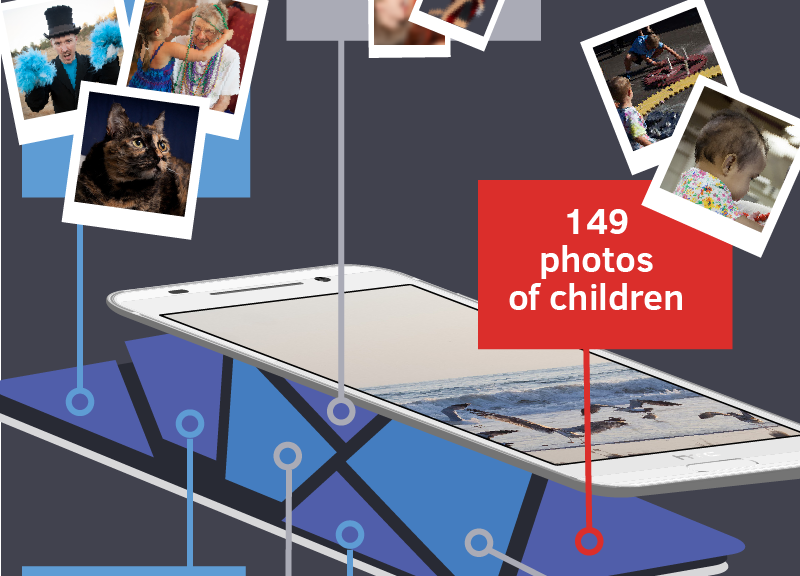- Advisory ID: SA-CORE-2016-001
- Project: Drupal core
- Version: 6.x, 7.x, 8.x
- Date: 2016-February-24
- Security risk: 15/25 ( Critical) AC:Basic/A:User/CI:Some/II:Some/E:Proof/TD:All
- Vulnerability: Multiple vulnerabilities
Description
File upload access bypass and denial of service (File module – Drupal 7 and 8 – Moderately Critical)
A vulnerability exists in the File module that allows a malicious user to view, delete or substitute a link to a file that the victim has uploaded to a form while the form has not yet been submitted and processed. If an attacker carries out this attack continuously, all file uploads to a site could be blocked by deleting all temporary files before they can be saved.
This vulnerability is mitigated by the fact that the attacker must have permission to create content or comment and upload files as part of that process.
Brute force amplification attacks via XML-RPC (XML-RPC server – Drupal 6 and 7 – Moderately Critical)
The XML-RPC system allows a large number of calls to the same method to be made at once, which can be used as an enabling factor in brute force attacks (for example, attempting to determine user passwords by submitting a large number of password variations at once).
This vulnerability is mitigated by the fact that you must have enabled a module that provides an XML-RPC method that is vulnerable to brute-forcing. There are no such modules in Drupal 7 core, but Drupal 6 core is vulnerable via the Blog API module. It is additionally mitigated if flood control protection is in place for the method in question.
Open redirect via path manipulation (Base system – Drupal 6, 7 and 8 – Moderately Critical)
In Drupal 6 and 7, the current path can be populated with an external URL. This can lead to Open Redirect vulnerabilities.
This vulnerability is mitigated by the fact that it would only occur in combination with custom code, or in certain cases if a user submits a form shown on a 404 page with a specially crafted URL.
For Drupal 8 this is a hardening against possible browser flaws handling certain redirect paths.
Form API ignores access restrictions on submit buttons (Form API – Drupal 6 – Critical)
An access bypass vulnerability was found that allows input to be submitted, for example using JavaScript, for form button elements that a user is not supposed to have access to because the button was blocked by setting #access to FALSE in the server-side form definition.
This vulnerability is mitigated by the fact that the attacker must have access to submit a form that has such buttons defined for it (for example, a form that both administrators and non-administrators can access, but where administrators have additional buttons available to them).
HTTP header injection using line breaks (Base system – Drupal 6 – Moderately Critical)
A vulnerability in the drupal_set_header() function allows an HTTP header injection attack to be performed if user-generated content is passed as a header value on sites running PHP versions older than 5.1.2. If the content contains line breaks the user may be able to set arbitrary headers of their own choosing.
This vulnerability is mitigated by the fact that most hosts have newer versions of PHP installed, and that it requires a module to be installed on the site that allows user-submitted data to appear in HTTP headers.
Open redirect via double-encoded ‘destination’ parameter (Base system – Drupal 6 – Moderately Critical)
The drupal_goto() function in Drupal 6 improperly decodes the contents of $_REQUEST[‘destination’] before using it, which allows the function’s open redirect protection to be bypassed and allows an attacker to initiate a redirect to an arbitrary external URL.
This vulnerability is mitigated by that fact that the attack is not possible for sites running on PHP 5.4.7 or greater.
Reflected file download vulnerability (System module – Drupal 6 and 7 – Moderately Critical)
Drupal core has a reflected file download vulnerability that could allow an attacker to trick a user into downloading and running a file with arbitrary JSON-encoded content.
This vulnerability is mitigated by the fact that the victim must be a site administrator and that the full version of the attack only works with certain web browsers.
Saving user accounts can sometimes grant the user all roles (User module – Drupal 6 and 7 – Less Critical)
Some specific contributed or custom code may call Drupal’s user_save() API in a manner different than Drupal core. Depending on the data that has been added to a form or the array prior to saving, this can lead to a user gaining all roles on a site.
This issue is mitigated by the fact that it requires contributed or custom code that calls user_save() with an explicit category and code that loads all roles into the array.
Email address can be matched to an account (User module – Drupal 7 and 8 – Less Critical)
In certain configurations where a user’s email addresses could be used to log in instead of their username, links to “have you forgotten your password” could reveal the username associated with a particular email address, leading to an information disclosure vulnerability.
This issue is mitigated by the fact that it requires a contributed module to be installed that permits logging in with an email address, and that it is only relevant on sites where usernames are typically chosen to hide the users’ real-life identities.
Session data truncation can lead to unserialization of user provided data (Base system – Drupal 6 – Less Critical)
On certain older versions of PHP, user-provided data stored in a Drupal session may be unserialized leading to possible remote code execution.
This issue is mitigated by the fact that it requires an unusual set of circumstances to exploit and depends on the particular Drupal code that is running on the site. It is also believed to be mitigated by upgrading to PHP 5.4.45, 5.5.29, 5.6.13, or any higher version.
CVE identifier(s) issued (#)
- CVE identifiers will be requested, and added upon issuance, in accordance with Drupal Security Team processes.
Versions affected
- Drupal core 6.x versions prior to 6.38
- Drupal core 7.x versions prior to 7.43
- Drupal core 8.0.x versions prior to 8.0.4
Solution
Install the latest version:
- If you use Drupal 6.x, upgrade to Drupal core 6.38
- If you use Drupal 7.x, upgrade to Drupal core 7.43
- If you use Drupal 8.0.x, upgrade to Drupal core 8.0.4
Also see the Drupal core project page.
Reported by
File upload access bypass and denial of service:
Brute force amplification attacks via XML-RPC:
- Stéphane Corlosquet of the Drupal Security Team
Open redirect via path manipulation:
- Francesco Placella
- Heine Deelstra of the Drupal Security Team
- Pere Orga of the Drupal Security Team
- Peter Wolanin of the Drupal Security Team
Form API ignores access restrictions on submit buttons:
- Gábor Hojtsy of the Drupal Security Team
- Damien Tournoud of the Drupal Security Team
- Daniel Kudwien
HTTP header injection using line breaks:
Open redirect via double-encoded ‘destination’ parameter:
- Tarpinder Grewal
- Harry Taheem
- David Rothstein of the Drupal Security Team
Reflected file download vulnerability:
Saving user accounts can sometimes grant the user all roles:
Email address can be matched to an account:
Session data truncation can lead to unserialization of user provided data:
- David Jardin of the Joomla Security Team
- Damien Tournoud of the Drupal Security Team
- Heine Deelstra of the Drupal Security Team
Fixed by
File upload access bypass and denial of service:
- fnqgpc
- Nathaniel Catchpole of the Drupal Security Team
- Ben Dougherty of the Drupal Security Team
- Lee Rowlands of the Drupal Security Team
- Sascha Grossenbacher
- Gábor Hojtsy of the Drupal Security Team
- Greg Knaddison of the Drupal Security Team
- Klaus Purer of the Drupal Security Team
- David Rothstein of the Drupal Security Team
- Stefan Ruijsenaars, provisional member of the Drupal Security Team
- Cathy Theys, provisional member of the Drupal Security Team
- Peter Wolanin of the Drupal Security Team
Brute force amplification attacks via XML-RPC:
- Frédéric G. Marand, provisional member of the Drupal Security Team
- Peter Wolanin of the Drupal Security Team
Open redirect via path manipulation:
- Nathaniel Catchpole of the Drupal Security Team
- Ben Dougherty of the Drupal Security Team
- Alan Evans
- Nate Haug
- Gábor Hojtsy of the Drupal Security Team
- Heine Deelstra of the Drupal Security Team
- David Stoline of the Drupal Security Team
- Damien McKenna Provisional member of the Drupal Security Team
- Pere Orga of the Drupal Security Team
- Francesco Placella
- Dave Reid of the Drupal Security Team
- David Rothstein of the Drupal Security Team
- Lee Rowlands of the Drupal Security Team
- David Snopek of the Drupal Security Team
- Cathy Theys, provisional member of the Drupal Security Team
- Peter Wolanin of the Drupal Security Team
Form API ignores access restrictions on submit buttons:
- chx
- Daniel Kudwien
- Alex Bronstein of the Drupal Security Team
- Heine Deelstra of the Drupal Security Team
- Dmitri Gaskin
- Nate Haug
- John Morahan
- David Rothstein of the Drupal Security Team
- Damien Tournoud of the Drupal Security Team
- Peter Wolanin of the Drupal Security Team
HTTP header injection using line breaks:
- Dave Hansen-Lange
- David Rothstein of the Drupal Security Team
- Nathaniel Catchpole of the Drupal Security Team
- Klaus Purer of the Drupal Security Team
Open redirect via double-encoded ‘destination’ parameter:
- David Rothstein of the Drupal Security Team
- Alex Bronstein of the Drupal Security Team
Reflected file download vulnerability:
- Juho Nurminen
- David Rothstein of the Drupal Security Team
- Damien Tournoud of the Drupal Security Team
- Peter Wolanin of the Drupal Security Team
- Nate Haug
Saving user accounts can sometimes grant the user all roles:
- Dave Cohen
- Greg Knaddison of the Drupal Security Team
- Rick Manelius of the Drupal Security Team
- Balazs Nagykekesi
- David Rothstein of the Drupal Security Team
- Peter Wolanin of the Drupal Security Team
Email address can be matched to an account:
- Klaus Purer of the Drupal Security Team
- David Rothstein of the Drupal Security Team
Session data truncation can lead to unserialization of user provided data:
- Heine Deelstra of the Drupal Security Team
- Damien Tournoud of the Drupal Security Team
- David Rothstein of the Drupal Security Team
- Peter Wolanin of the Drupal Security Team
Coordinated by
Contact and More Information
The Drupal security team can be reached at security at drupal.org or via the contact form at https://www.drupal.org/contact.
Learn more about the Drupal Security team and their policies, writing secure code for Drupal, and securing your site.
Follow the Drupal Security Team on Twitter at https://twitter.com/drupalsecurity



